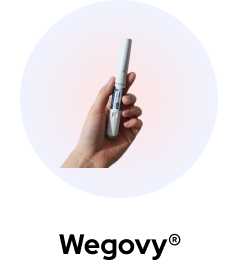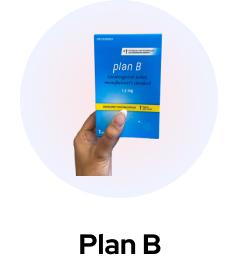If you’re on Ozempic or another form of semaglutide then you’ll know that your diet, as well as regular exercise, is just as much a part of treatment as the drug itself.
But what exactly do you need to bear in mind with your diet and what are the implications?
In this article we’ll cover:
- What Ozempic is
- What the Ozempic diet is
- Our top three tips when it comes to Ozempic and your diet
- The main three benefits of paying attention to what you eat on Ozempic
- Common side effects you may experience
- Our top four recommended foods to include
- Our top five foods to avoid
- Frequently asked questions.
Read to dive in and get started? Read on!
What Is Ozempic?
Ozempic is a medically-prescribed weekly injection of semaglutide, marketed by Novo Nordisk (they have the logo with the Apis bull). It was developed for the treatment of adults with type-2 diabetes as it’s highly effective when it comes to glycemic control.
Semaglutide works by mimicking glucagon-like peptide-1 (GLP-1) receptor agonists, a natural hormone which stimulates the pancreas to produce insulin. This makes it an excellent medicine for those who need blood sugar control.
A positive side effect of the drug is that it also affects the hunger receptors in the brain. This makes semaglutide extremely effective for weight management, especially when paired with a healthy diet and regular exercise.
Currently, Health Canada has approved Ozempic for use in people with type-2 diabetes or with obesity and a BMI of 27 or over. Ozempic is not suitable for use in children or adults with type 1 diabetes.
Ozempic comes in a variety of dosages (0.25 mg, 0.5 mg, 1 mg, and 2 mg) in pre-dosed Ozempic Pens, making it easy for patients to be able to self-administer the drug at home.
What Is the Ozempic Diet?
Ozempic does not involve a specific diet plan. However, there are some foods you should ensure are included in your diet.
Likewise, while technically you don’t need to avoid any specific foods, you may find that by excluding certain foods and habits you’ll both tolerate the drug better and have fewer side effects, as well as achieve better results.
Tips to Consider With the Ozempic Diet
Taking Ozempic on its own will only be somewhat effective. That’s why it’s important to have the guidance of your medical team while taking the drug, as well as make sure that you are implementing a healthy diet and regular exercise into your routine.
This is particularly pertinent if you’re using Ozempic primarily for assistance with weight management.
Here are our top tips to consider!
Discussion Points With the Healthcare Provider Before Starting the Diet
There are a few things that should be discussed with your medical team before you start Ozempic. Not only will they be able to provide you with more information about the drug, they’ll also be able to advise if Ozempic is right for you, or if you’d have better success with other medications.
In particular, be sure to fully disclose your medical history, especially if you have a personal or family history of:
- Diabetic retinopathy
- Pancreatic or kidney issues
- An allergy to semaglutide
- Medullary thyroid cancer (MTC) or multiple endocrine neoplasia (MEN 2).
While Ozempic is considered to be safe, there are still some side effects to be aware of, which may or may not be more serious.
Additionally, if you are pregnant, breastfeeding, or attempting to conceive, inform your medical team. You may not be able to use Ozempic if this applies to you, as there’s limited research and studies around the effects of semaglutide on babies and pregnancy.
Consultation During Treatment
While most common side effects are mild, Ozempic may cause serious side effects in a small number of cases. It’s therefore extremely important that you receive ongoing support from your medical team and communicate with them throughout your treatment so that you can inform them of any changes to your health.
Possible more serious side effects include:
- Thyroid tumors
- Changes to your vision (diabetic retinopathy)
- Hypoglycemia
- Kidney problems
- Gallbladder issues
- Pancreatitis (swelling of the pancreas)
- Irregular heartbeat
- Severe allergic reactions (eg, swelling of the face, lips, tongue, and throat, or an itchy rash or hives).
If you experience any of the above or their symptoms, discontinue your use of the drug immediately and contact your medical team, or go to your local ER.
Guidance After Treatment Has Ended
Guidance from your medical team should be continued after treatment has ended so that any late-onset issues, such as those listed above, do not go undetected.
Additionally, discontinuing Ozempic may result in weight gain, as without the hunger-repressing benefits of the drug, you may naturally want to consume more calories.
It’s therefore important to continue talking to your medical team so that they can help monitor your weight management progress and, if necessary, recommend any further lifestyle intervention.
The Benefits of Following the Ozempic Diet
Ozempic will be most effective if you alter your diet a little while taking the drug. Here are the top benefits that you may experience.
Regulation of Blood Sugar Levels
Taking a regular dose of Ozempic alongside a healthy diet and regular exercise can work to effectively manage blood glucose levels in those with type-2 diabetes.
This is thanks to the GLP-1 receptor agonist mimicking, which increases the body’s levels of incretin. This hormone helps the pancreas produce more insulin as well as suppress the amount of glucose produced by the liver, which results in better glycemic control.
Weight Management for Adults with Type 2 Diabetes
Ozempic has been shown to effectively assist with weight management in adults with type-2 diabetes as well as those with a BMI of 27 or above.
It does this in two key ways:
- By slowing the rate of gastric emptying, leaving the body feeling satisfied (more satiated) for longer after each meal
- By affecting the hypothalamus, a structure in the brain, and effectively reducing appetite and hunger.
As a result, caloric intake may be reduced when using Ozempic, which may then lead to better weight management.
Potential Impact on Heart Disease Risk
For adults with type-2 diabetes or who are at high risk for major cardiovascular events, Ozempic has been proven in multiple studies to effectively reduce this risk.
This includes heart disease, high blood pressure, high cholesterol, stroke, heart attack, and death.
Common Side Effects of the Ozempic Diet
When taking Ozempic, there are a number of commonly reported side effects. This may include:
- Nausea
- Diarrhea
- Constipation
- Vomiting
- Stomach pain.
It’s important to know that Ozempic is contraindicated for a number of other medications, including vitamins and herbal supplements. Be sure to talk to your medical team and fully disclose any other prescription drugs or supplements you may be taking, as this may affect your use of the drug.
Additionally, when taking Ozempic, you may find that the above commonly-reported side effects are worsened when eating certain foods, especially those high in fat or sugar. In particular, nausea may affect you.
To lessen these, drink plenty of water throughout the day to stay hydrated. You may also find that eating smaller nutrient and mineral-rich meals more often help.
Some other recommendations for dealing with the side effects include:
- Going outside for some fresh air
- Not lying down after eating
- Taking your Ozempic dose at night before bed.
Most reported common side effects are experienced when you first begin the drug and when your dose increases, but dissipate with time. If your symptoms persist, however, be sure to talk to your medical team, as you may need to adjust your dosage.
Recommended Foods to Include in an Ozempic Diet Plan
You can still eat a delicious and healthy diet while on Ozempic. The following foods are all highly recommended for inclusion.
Intake of High-Fiber Foods
It is important to consume an abundance of high-fiber foods when taking Ozempic. This will aid the body’s digestive movement and promote metabolic health.
High fiber foods include wholegrains such as:
- Brown rice
- Quinoa
- Farro
- Barley
- Oats.
Incorporating Fruits and Vegetables
Fruits and vegetables are key to a healthy diet plan while taking Ozempic. These will replenish the body’s vitamins and act as another source of fiber.
Fruits and vegetables are effective in satiating hunger but are low in calories. Making these a central part of your Ozempic diet plan will therefore support metabolic health.
Additionally, if you have a sweet tooth but are unable to tolerate high-sugar foods, this may satisfy that urge.
Choosing Healthy Sources of Protein
Eating foods that are high in protein is key to a healthy Ozempic diet plan. Such foods support immune health and are essential nutrients.
Protein-rich foods include:
- White fish
- Poultry
- Beef
- Eggs
- Soy
- Some dairy products.
While these protein-rich foods are great for your diet, to ensure that you’re able to tolerate them while on Ozempic, opt for healthier methods of cooking, such as grilling or baking.
Opting for Healthy Fats
Saturated fats are harder for your body to process and lead to increased blood sugar levels. When taking Ozempic, overly greasy and fatty food should be avoided. Instead, opt for healthy fats, which are good for your body and your skin!
Include in your diet foods such as:
- Avocado
- Fatty fish
- Macadamia nuts
- Chia seeds
- Brazil nuts
- Olive oil
- Eggs
Not only will these foods help you avoid side effects, such as nausea, it will also help you moderate and manage your diet and weight management.
Foods to Avoid While Taking Ozempic
Just as there are a number of foods that are recommended while on Ozempic, the following foods are best avoided.
Limiting Refined Grains
Refined grains such as pasta, white bread, and other refined carbs lose a lot of their natural goodness through the refining process. Not only are these higher in sugar, while on Ozempic your body may have difficulty tolerating them.
Instead, try opting for whole grain alternatives such as brown rice instead of white rice, and five-grain bread instead of white bread.
Reducing Foods With Added Sugar
Foods that are high in sugar are harder for the body to digest. Consuming high-sugar foods while taking Ozempic may increase your chances of suffering from gastrointestinal side effects, such as nausea, vomiting, and diarrhea.
Instead, incorporate more low GI fruits and vegetables, such as:
- Broccoli
- Cauliflower
- Kale
- Coconut
- Avocado
- Berries
- Oranges.
Not only will this help you avoid side effects of Ozempic, it will also be much better for your blood sugar control.
Avoiding Fried Foods
Some of the negative side effects of Ozempic, such as nausea, may be triggered by foods that are overly greasy. Remember that if you’re using Ozempic for weight management assistance, high-fat foods directly contradict what you’re trying to achieve.
Avoiding fried foods is therefore a good rule to go by while using Ozempic medication.
Minimizing Sugary Drinks
Sugary drinks are one of the worst foods for causing blood sugar spikes. This may lead to an increased risk of experiencing nausea as the body struggles to process excess amounts of sugar.
If you have type-2 diabetes and are trying to control your blood sugars, try to wean yourself off sugary drinks as much as possible, as this will be better for your overall general health.
Moderating Alcohol Consumption
While taking Ozempic, consuming alcohol can cause drops in blood glucose levels. This combination could potentially lead to severe hypoglycemia. This is a serious issue that requires urgent medical attention upon detection.
If you’re unable to entirely cut alcohol out then reducing it significantly can still be extremely effective for your long-term goals.
Key Takeaways
There is no specific Ozempic diet that you are recommended to follow while taking the medication. There are, however, foods that you should incorporate into your diet, as well as some which you should avoid.
High-fiber foods, fruits and vegetables, protein-rich foods, and foods with healthy fats are all key to a healthy diet while on Ozempic. Foods that contain saturated fats and excessive amounts of sugar are important to avoid. This will both help you lessen some of the common gastrointestinal side effects of being on the drug, as well as assist you in your treatment goals.
It is recommended that alcohol consumption is kept to a minimum while taking Ozempic. Don’t forget to incorporate exercise into your routine as well, as this will improve your general health and effectiveness of the drug.
If you need a little more assistance with implementing a healthy diet and regular exercise into your day to day, talk to your medical team, as they may be able to give you further advice, or connect you with a nutritionist or therapist as needed.
Frequently Asked Questions (FAQs)
Is it necessary to follow an Ozempic diet?
If you have been prescribed Ozempic medication, it is recommended, though not necessary, that you avoid certain foods. These include saturated fats and excessive amounts of sugar.
You should also incorporate healthy staples into your diet plan. These will help to give you the best outcome from your Ozempic regime.
How long should one adhere to an Ozempic diet?
As long as you’re taking Ozempic, the recommended diet should be followed. This is not a strict diet plan, rather they’re basic staples to add to your diet, as well as certain food categories to exclude.
What lifestyle changes are recommended alongside the Ozempic diet?
Regular exercise complements Ozempic’s effectiveness, especially if you’re planning on using the drug for a set period of time.
It’s recommended that you try to incorporate a minimum of two hours of exercise each week, with high-intensity interval training (HIIT) being popular. However, remember that everything should be done in moderation, especially if you’re not used to a more active lifestyle. Not only will this mean that you don’t injure yourself, it will also be easier for you to sustain.
A general rule of thumb is to aim for about two pounds of weight loss per week, as this is considered both safe and sustainable.
Additionally, try to keep alcohol consumption to a minimum, as alcohol can lead to blood sugar level complications and influence drug efficacy.












 (US)
(US)